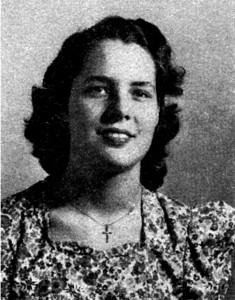College of Education alumna named 2022 Florida Teacher of the Year
Sarah Ann Painter (M.Ed.’12) was recognized as the 2022 Teacher of the year by the Florida Department of Education.
Build your brighter future with our top ranked online programs
The University of Florida College of Education is dedicated to preparing tomorrow’s educational leaders. Interested in becoming an online EduGator? Hear directly from our online graduate students and alumni.
Once an EduGator, Always an EduGator
“If teaching is your passion, if you’re meant to be an educator, UF’s College of Education is the only place you should entrust your education.”
Triple Gators Championing Civic Education For All
Triple Gators Emma Humphries and Stephen Masyada are united not only by their passion for civics, but also the opportunity they had to cultivate that passion as graduate and doctoral students at the UF College of Education.
Leaving a legacy through the gift of education – Larry Tyree, Ed.D.
/by labellebrittanyLeaving a legacy through the gift of education – Della Rosenberg, M.Ed.
/by labellebrittanyLearning disabilities group honors UF Special Ed grad
UF Special Education alumnus David Allsopp (MEd ’90, Specific Learning Disabilities; PhD, ’95, Special Education), has been named the Sam Kirk Educator of the Year by the Learning Disabilities Association of America (LDA).
Five Questions for EduGator Larry Feldman, Board Chair of Miami-Dade Public Schools
/by labellebrittanyUF Grad’s Newest Leadership Role: Chair of Florida’s Largest School District
/by labellebrittanyUF, COE, state mourn loss of ‘rising star’ alumnus Brian Dassler
/by labellebrittanyCOE alumna Stacy Ellis named new UF Baby Gator director
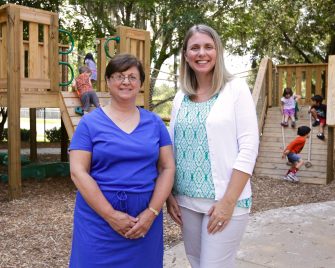
COE alumna Stacy Ellis (right) succeeds newly retired Pam Pallas as UF Baby Gator director.
After conducting a national search, the University of Florida has named a College of Education alumna as the new director of Baby Gator Child Development and Research Centers at UF.
Deciding the best candidate was already on staff, the university appointed Stacy Ellis, formerly the associate director for organizational operations at Baby Gator. She is a 2008 education doctoral graduate in curriculum and instruction.
Her promotion became effective June 17. Ellis succeeded Pamela Pallas, who retired after 13 years as Baby Gator director. Pallas also was a clinical associate professor in early childhood studies at the College of Education.
With Pallas at the helm, Baby Gator went through a growth spurt that saw it blossom into a nationally recognized center. Baby Gator is known both for its innovative daycare services and its collaboration with UF faculty researchers in cutting-edge early childhood studies.
In 2010, Baby Gator became the hub of the research activities for the new UF Center for Excellence in Early Childhood Studies, which last year was renamed after COE alumna and major donor Anita Zucker. Ellis replaces Pallas on the center’s leadership team.
Before receiving her doctorate in education, Ellis earned her master’s in family, youth and community services in 2002 and her bachelor’s in human resource development in 1999, all at UF.
Ellis originally joined Baby Gator in 2004 as a teacher in the two-year-olds class and then rejoined in 2008 after completing her graduate degree. She quickly moved up the ranks from teacher, assistant director of educational programming, associate director for organizational operations, and now director.
Ellis says her major focuses as she steps into the new role will be to increase salaries for Baby Gator teachers, introduce new research based practices, and build on Baby Gator’s long-standing relationship with the College of Education and the Anita Zucker Center for Excellence in Early Childhood studies.
“We have a model demonstration program that is nationally recognized,” she said. “My ultimate goal is to expand on that and push Baby Gator towards innovation in the early childhood field.”
Pallas said that Ellis’ knowledge, experience and ideals, from both her College of Education theoretical background and her years of practical experience at Baby Gator, made her the top candidate for the position.
“I know she will help grow, achieve and maintain Baby Gator’s well-deserved recognition under her tenure as director,” Pallas said..
When Pallas arrived in 2003, Baby Gator was enrolling around 80 students and had only one location. Now, Ellis takes over a center that enrolls 333 children across their three centers and maintains a long waiting list.
Ellis will oversee Baby Gator’s continued growth as it strives for preeminence in the field and is working cooperatively with the Anita Zucker Center and community agencies to partner in unique ways.
Writer: Kelsie Ozanne, news and communications office, UF College of Education; kozanne@ufl.edu
Media Relations: Larry Lansford, director, news and communications, UF College of Education; 352-273-4173; llansford@coe.ufl.edu
Ed. Leadership alumna heads Florida Philanthropic Network
UF College of Education alumna Stacy Carlson (PhD ‘11, educational leadership and administration) is the new president and CEO of the Florida Philanthropic Network.
Carlson previously was vice president and program director of College and Career Readiness at Helios Education Foundation in Tampa. Over the years, she worked closely with the college’s Lastinger Center for Learning on several educational outreach initiatives in school districts across the state that were supported by Helios’ investments.
At Tampa-based FPN, Carlson heads a statewide membership network of nearly 120 philanthropic organizations working “to build philanthropy to build a better Florida.” She will shape the network’s vision, strategy and mission; develop membership programs, and lead planning, management and implementation of FPN’s policy and advocacy work.
“Dr. Carlson is a highly accomplished professional who is deeply respected by Florida’s governmental, educational, philanthropic and social sector leaders,” UF Lastinger Center Director Don Pemberton said. “In particular, Stacy and Helios Education Foundation championed the Lastinger Center’s development of a new STEM education model for our school improvement efforts across Florida.”
Carlson has 10 years’ experience in foundation development and capacity building. She previously worked as executive director of Consortium of Florida Education Foundations. She is a founding board member of the National Schools Foundation Association and author of a philanthropy strategy guide titled “From Better to Best: Practical Strategies to Boost Efficiency in Your Education Foundation.”
Along with her doctorate from UF, Carlson has a master’s in education from Harvard University. She also is the 2015-16 president of The Junior League of Tampa.
Writer: Katelin Mariner, (352) 273-4449
How Outstanding Young Alum saved his teaching career
Meet Jon Mundorf
Winner of UF College of Education’s 2016 Outstanding Young Alumni Award.
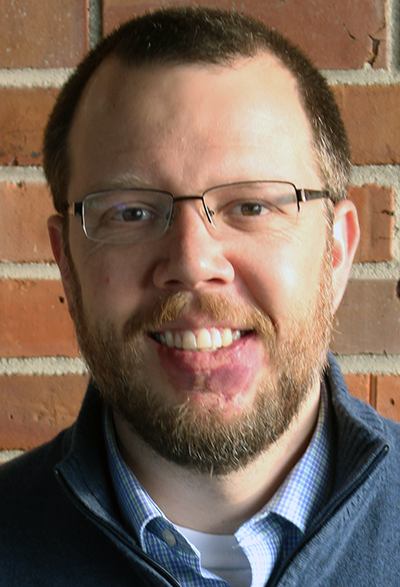
Jon Mundorf was considering quitting the profession after three years of teaching elementary school in Naples, Florida.
He felt frustrated and ineffective despite doing his best to follow the top teaching methods, curriculum, and steps laid out in educator manuals.
“Only a small number of kids really got it when I would teach,” Mundorf says.
Some did not speak English, others had behavior problems or any number of learning disabilities. He came to realize: The standardized teaching methods he was using were ineffective because his students weren’t standardized.
In the summer of 2006, Mundorf decided to look for a better way to teach and give his career a spark.
He found it. He learned new teaching methods that are designed for educators to more effectively reach all their students, and he has gone on to become an award-winning teacher, and an internationally recognized practitioner of teaching to meet the needs of all learners.
Young Alumni Award
Today (April 8), Mundorf, 36, received the UF College of Education’s Outstanding Young Alumni Award, one of 23 Gator alumni across campus who will be honored as leaders in their professions at a ceremony at Emerson Alumni Hall.
Mundorf’s story surely holds lessons for other teachers who are early in their careers, when research shows a high percentage leave the profession.
Mundorf, Ed.D., is a 2014 graduate of UF’s online doctorate in curriculum and instruction program, which is designed to strengthen the skills of practicing educators. His dissertation was about his experience of using universal learning methods to teach a blind student to read in his integrated classroom.
This school year, he joined UF’s P.K. Yonge Developmental Research School, where he teaches seventh grade language arts.
“Dr. Mundorf brings to our classrooms extensive knowledge and many years of experience in leveraging technology and non-tech strategies for supporting the needs of each learner,” P.K. Yonge Director Lynda Hayes says. “He is a dedicated practitioner scholar committed to providing the best possible seventh grade English language arts experience for our diverse students.”
Universal Design for Learning
Mundorf credits his transformation to a decade ago when he entered Harvard Graduate School of Education’s summer institute on universal design for learning (UDL), a partnership with the nonprofit Center for Applied Special Technology (CAST), which now includes Mundorf among its teaching cadre. UDL is a method of using inclusive teaching methods to meet the needs of all learners.
“Upon returning from Harvard, I reinvented myself as a teacher,” Mundorf wrote in his UF dissertation. “Instead of focusing and complaining about the disability I saw in my students, I chose to target the disability in our curriculum. The barriers within the curriculum were minimized because I had developed a student-centered stance for exploring the curriculum with my students.”
Mundorf’s ability to engage an audience with his love of teaching is striking, and he can turn a brief interview into a lively hour-and-half discussion of his teaching philosophy, education research findings and lessons he has learned along the way.
A native of Cuyahoga Falls, Ohio, Mundorf often wears a jacket bearing the logo for Bowling Green State University, where he earned his bachelor’s degree in education. He also has a master’s degree from Florida Gulf Coast University and joined the small ranks of teachers certified by the National Board for Professional Teaching Standards, a nonprofit that aims to advance accomplished teaching for all students.
In an example of his inclusive teaching methods, Mundorf says he provides choices in how a student engages with reading materials, providing audio-visual, text-to-speech, captioning, and, if necessary, Braille formats. His students also have choice in how they express their grasp of the subject, such as writing an essay, making a speech or giving a visual presentation.
This way, students with high-incidence disabilities, such as dyslexia – by some estimates up to 20 percent of students – as well as less common disabilities like blindness are given a better opportunity to succeed.
“We allow students multiple ways to learn, engage, and demonstrate mastery,” Mundorf says. “If I only give them one way, it leaves some out.”
Mundorf is in demand to teach not only students but other educators. He has consulted with schools and organizations on inclusive teaching practices, accessibility, technology integration and other ways to improve teaching and learning. In the fall of 2015, he traveled to Fukuoka, Japan, to provide the keynote speech and lead a workshop on inclusive classroom instruction at the National Conference of the Japanese Academy of Learning Disabilities.
Mundorf says students will succeed in the 21st Century not by memorizing all the prepositions in the English language. They will succeed by becoming expert learners. And the same goes for teachers.
“Teaching can be extremely challenging and there is no one right way to do it,” he says. “You have to constantly work at it to reach all the learners. When you feel like you have figured it all out, the next day things change. Teachers have to be the lead learners in this effort.”
Source: Jon Mundorf, P.K. Yonge Developmental Research School; 352-392-1554
Writer: Charles Boisseau, UF College of Education, news and communications office
School names corridor after former principal to honor daughter’s gift
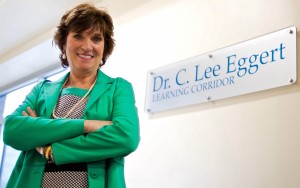 Leslie Eggert Scales-Holloway (BAE ’68) was visibly moved as she reflected on her late father’s role as the beloved principal at P.K. Yonge Developmental Research School from 1947 to 1952. “He strongly believed in the connection between school and community,” she said in a recent interview. “That was Daddy.”
Leslie Eggert Scales-Holloway (BAE ’68) was visibly moved as she reflected on her late father’s role as the beloved principal at P.K. Yonge Developmental Research School from 1947 to 1952. “He strongly believed in the connection between school and community,” she said in a recent interview. “That was Daddy.”
Scales-Holloway of Orlando, and a P.K. Yonge “lifer” (attending kindergarten through high school there), has pledged a $100,000 gift in support of the school’s proposed state-of-the-art secondary building. Like P.K. Yonge’s ultramodern elementary building, which opened in 2012, the 21st century design of the secondary building will “transform the educational experience for today’s and tomorrow’s students,” according to school Director Lynda Hayes.
While the secondary building project is still in the fundraising stage before construction can start, school officials have honored Scales-Holloway for her generosity by naming a key portion of the new elementary wing as the Dr. C. Lee Eggert Learning Corridor, in honor of her father, the former principal.
“The (learning corridor) space is flexible and can be used in so many different ways. Daddy would have loved this space and seeing the potential for a wide variety of learning activities and community events taking place here,” Scales-Holloway said.
After Dr. Eggert’s time at P.K. Yonge, which has served as UF’s K-12 laboratory school since 1934, he joined the faculty at the UF College of Education where he was a professor of secondary administration. His work with the Florida Parent-Teacher Association and chairmanship of the Florida Association of Colleges and Secondary Schools endeared him to students, parents, teachers and administrators statewide.
After graduating from P.K. Yonge, Scales-Holloway went on to earn her bachelor’s degree in education in 1968 from the UF College of Education. She taught school in Alachua and Marion counties and served for several years as a member of the Marion County School Board.
She was recently joined in celebrating the naming of the Dr. C. Lee Eggert Learning Corridor by her husband Rufus (who also goes by “Dick”), three siblings (also P.K. Yonge “lifers”), extended family, P.K. Yonge faculty and staff.
The prevailing sentiment at the school may best be summed up in the words of Ashley Pennypacker-Hill, P.K. Yonge program and outreach specialist and a P.K. Yonge alumna (class of ‘99): “We are delighted that this beautiful space will now remind us of P.K. Yonge’s past and will continue to support P.K. Yonge’s future.”
Special ed. alumni cited for early research success
A pair of College of Education alumni have been selected for prestigious national honors from the Council for Exceptional Children for their outstanding research.
Brian Boyd won the 2016 Distinguished Early Career Research Award and recent graduate Elizabeth Bettini won for the best student-initiated research study.
The Arlington, Virginia-based Council for Exceptional Children is the world’s largest organization of special education professionals and educators. CEC will present the awards in April in St. Louis at the group’s annual convention.
Boyd’s honor recognizes scholars who have made outstanding scientific contributions in basic or applied research in special education within 10 years after receiving their doctoral degree.
Boyd now is an associate professor at the University of North Carolina at Chapel Hill. He received a doctorate in special education in 2005 from UF under mentorship of Maureen Conroy, Ph.D., who now serves as co-director of the Anita Zucker Center for Excellence in Early Childhood Studies.
UF Special Education Professor Mary Brownell said: “The Early Career Award is one of the most significant awards recognizing the promise of young scholars in special education.”
The official language from the award said: “Dr. Boyd is considered one of the most promising scholars in early childhood and autism. He has published 46 papers in top-tier journals, such as the Journal of Child Psychology and the Journal of Autism and Developmental Disorders, and his work is cited frequently.”
Bettini won for quantitative design for her research paper titled: Novice Special Educators’ Perceptions of Workload Manageability: Do They Matter and Are They Influenced by Novices’ Perceptions of Their Social Context?
Selected through a confidential review process, the award recognizes high-quality scholarship across multiple research methodologies conducted by students in the course of their undergraduate or graduate special education training program.
Bettini earned a doctorate in special education from the College of Education in 2015 and now is an assistant professor of special education at Boston University.
“Elizabeth was an outstanding student who continues to be devoted to conducting research on working conditions for special education teachers,” Brownell said. “She won the Outstanding Graduate Researcher Award for our College of Education in 2015.”
NSF fellowship is just the latest achievement for UFTeach alum Xavier Monroe
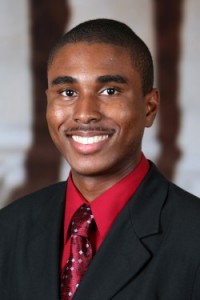 Xavier J. Monroe, a 2013 UF graduate, belongs on a UFTeach student recruitment poster.
Xavier J. Monroe, a 2013 UF graduate, belongs on a UFTeach student recruitment poster.
And that’s even before he was awarded a prestigious Graduate Research Fellowship in STEM education and learning research recently from the National Science Foundation.
While Monroe was still a UF undergraduate double-majoring in civil engineering and history, and also minoring in African Studies, the College of Education in 2011 enrolled him in yet another degree program–its new UFTeach mathematics education minor.
For someone with Monroe’s drive, what’s one more degree program, right?
The UFTeach minor degree programs in math or science education together are one of the pillars of the college’s STEM education reform strategy. The goal of UFTeach is to enlist top science, technology, engineering and math majors and prepare them to teach effectively in one of those vital STEM disciplines at the middle or high school grade levels.
Monroe personifies what UFTeach is all about. After simultaneously earning all four UF degrees—the two majors and both minors, the east Gainesville native and former Florida Academic Scholar went on to obtain his master’s in educational leadership and policy a year later from the University of Michigan.
He’s now poised to start his second year of Ph.D. studies in educational policy at Stanford University, coinciding with his selection as an NSF Graduate Research Fellow.
After Monroe completes his doctorate, he said he’d like to become a college professor and conduct education research in areas such as school transformation, policies and practices that will improve student achievement, the role of family and community partnerships with public schools, and issues of equity and access in STEM education, particular for underrepresented minorities.
Monroe said he’s grateful for the impact that UFTeach has had on his education philosophy and career path.
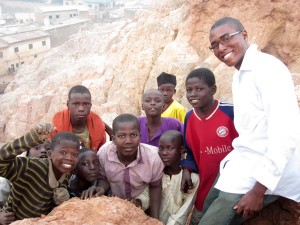
Monroe poses with a group of kids he met in Kano, Nigeria, where he conducted research as a UF undergraduate.
“The level of training and guidance from UFTeach equipped me with tools to succeed in the classroom as a pre-service teacher and in my local community work as an after-school instructor,” Monroe said. “This was also the beginning of my transition to the education field.”
“Education requires a great sense of humility, passion and the ability to partner with families and communities to best meet the needs of students, particularly our most vulnerable students,” he added.
Monroe said he vividly remembers something that UF STEM education instructor Kent Crippen said one night in class: “Students do not need your sympathy, they need you to teach them in ways that help to address the issues they face.”
Monroe’s fellowship was one of only 16 awarded by NSF in STEM education and learning research. The fellowship will support his study of the influence of teachers relating teaching content to the cultural backgrounds of their students.
Associate professor Crippen said Xavier’s fellowship award “is a significant accomplishment for a UFTeach alumnus and demonstrates the scope and broader impact of the program.”
CONTACTS
SOURCE: Xavier Monroe, monroexj@stanford.edu
SOURCE: Kent Crippen, UF College of Education; 352-273-4222; kcrippen@coe.ufl.edu
WRITER: Larry Lansford, communications director, UF College of Education; 352-273-4137; llansford@coe.ufl.edu;
’72 grad Renee Tipton Clift honored as 2015 UF Distinguished Alumna
The University of Florida has selected noted teacher education innovator Renee Tipton Clift, a 1972 graduate of the UF College of Education, to receive its 2015 UF Distinguished Alumni Award.
Clift, a professor and dean at the University of Arizona College of Education, will be recognized at UF’s commencement on May 1 at Ben Hill Griffin Stadium.
She has been a highly influential figure throughout a stellar education career spanning four decades.
“Dr. Clift is noted not only for her innovation, renown and expertise in teacher education, but also for her capacity to build partnerships across educational institutions, policymakers and government agencies,” COE professor emerita Dorene Ross wrote in nominating Clift for the award. “This kind of leadership has direct impact on thousands of teachers and their students and demonstrates the highest levels of leadership.”
After receiving her bachelor’s in education from UF, Clift taught high school English for eight years in Florida. She went on to receive a master’s in educational administration from Stetson University and her Ph.D. in curriculum and teacher education from Stanford before launching her teacher education career at the University of Houston. She also has served on the University of Illinois education faculty, where she was the executive director of the Council on Teacher Education and headed the school’s Novice Teacher Project.
Clift has left her mark at every stop, where she studied or taught, and in her profession at large.
She’s known for her research investigating factors that affect the process of learning to teach—for pre-service teachers, professional development for practicing educators, and education leadership. Her current projects include Communities as Resources for Early Childhood Teacher Preparation (CREATE), a field-based, early childhood teacher prep program; making common core state standards for mathematics accessible to teachers; and an ongoing study that employs self-study methods to examine the impact a college dean can have on program development.
A prolific writer, Clift has co-authored two books, co-edited three others and has contributed 31 book chapters, including chapters in two of the most prestigious and influential books in teacher education–Handbook of Teacher Education and Studying Teacher Education: The AERA Consensus Panel. She has author and co-author citations for numerous journal articles.
“I’ve frequently relied on Dr. Clift’s published work to inform my own scholarship,” wrote UF teaching and learning professor Elizabeth Bondy. “Renee is able to write for multiple audiences, including university researchers, teacher educators, policymakers and classroom teachers. This special talent helps to explain the wide-ranging influence of her professional contributions.”
Not surprisingly, Clift has won numerous professional honors, including the Outstanding Research in English Education Award from the National Council of Teachers of English (twice, and the Hans Olsen Outstanding Teacher Educator Award from the Association of Teacher Educators.
She has held several leadership positions for the two most prominent professional teaching organizations–the Association of Teacher Educators and the American Educational Research Association.
Clift said her coursework and experiences during her bachelor’s studies at UF’s College of Education helped to shape her teaching philosophy and career path. She said her greatest takeaway was discovering that “I can always learn from my students because teaching is more about listening, discussing and interacting then about telling. I learned how to involve students in my classroom activities.”
As for advice to preservice teachers-in-training or novice teachers in their first years of teaching, she offers these words of wisdom: “Teachers are instructional organizers. It isn’t about you and what you do, it is about your students, how you engage them, and how your classroom allows them to learn and develop.”
CONTACT: Larry Lansford, News & Communications, UF College of Education; 352-273-4137; llansford@coe.ufl.edu
EduGator alumni gatherings coming your way in Tampa, Gainesville, Chicago and St. Augustine
EduGators in Tampa, Gainesville, Chicago and St. Augustine areas take note: We’re heading your way and would love to get together with you! Delicious food, great conversations and reminiscing with your fellow COE alumni await you, and you’ll hear the latest updates on the College’s exciting initiatives and latest trends in educator preparation and research.
Here are the dates to save for the EduGator Gathering in your area . . .
Tuesday, March 31
TAMPA
UF EduGator Alumni Reception
Epicurean Hotel, 1207 South Howard Avenue
5:30 – 7:30 p.m.
Dean Glenn Good and the UF College of Education invite you to join us at the Tampa EduGator Reception to be held in the Culinary Theatre of the Epicurean Hotel. Valet parking will be validated. Please join fellow COE alumni and friends for food, conversation, and to hear the latest updates on the College’s initiatives. There will be a food demonstration by one of the Epicurean’s chefs! For more details and to RSVP, email rsvp@coe.ufl.edu.
Wednesday, April 8
GAINESVILLE
Education Alumni Panel / Careers in Education Fair
UF Reitz Union
4 to 7 p.m.
These annual events offer a great opportunity to listen to and network with education professionals from across the state. All UF alumni and students are invited to attend one or both events.
— The Alumni Panel will be held from 4 to 5 p.m. in the Reitz Union Auditorium. The first 25 attendees will receive a UF Education tote bag or t-shirt. A panel of four dynamic College of Education alumni will offer career advice and talk about the distinctly different career paths they each have followed—quite successfully—after earning their education degrees from UF. Panel members include: Tina Calderone, school board member at Seminole County Public Schools; Jayne Ellspermann, 2015 National Principal of the Year and principal of Ocala’s West Port High School; Steve Freedman, executive director of the Institute for Child Health Policy of the State University System of Florida; and Skip Marshall, vice president and CTO of Tribridge, a technology services firm.
— From 5 to 7 p.m., UF’s award-winning Career Resource Center and the College of Education are hosting the “Careers in Education” Fair in the Reitz Union Ballroom. Representatives from more than 50 Florida school districts will be on hand, and many will hire on the spot. Business attire is encouraged and you must have your resume and a photo ID to enter the fair. For more information, contact jgonzalez@coe.ufl.edu
Friday, April 17
CHICAGO
UF EduGator Alumni Reception
Chicago House of Blues, 329 N. Dearborn Street
7 to 9 p.m.
You and a guest are invited to join UF Education Dean Glenn Good and Associate Dean Tom Dana, along with other alumni and education faculty, for a Chicago EduGator Reception in The Foundation Room of The House of Blues, 329 N. Dearborn Street. Join your fellow Florida alumni and faculty for great food and conversation. The Gator Nation is Everywhere! For questions and to RSVP, email rsvp@coe.ufl.edu.
Thursday, May 14
ST. AUGUSTINE
UF EduGator Alumni Reception
Oldest Wooden School House, The Gardens, 14 Saint George Street
6 to 8 p.m.
Join fellow College of Education alumni for great food and conversation with your fellow EduGators, and you’ll receive updates on the College’s exciting initiatives and how we’re addressing the latest trends and issues in today’s complex education world. Hope to see you there! For more information and to RSVP, email rsvp@coe.ufl.edu
Diverse practitioners headline Education Career Night April 8
Four College of Education alumni will offer career advice that extends well beyond teaching during the college’s annual Education Career Night set for April 8 at the Reitz Union Auditorium.
The event is scheduled for 4 p.m. to 5 p.m. and is open to all.
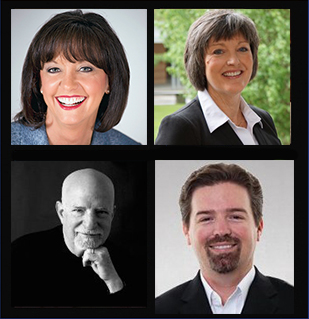 This year’s four-member panel will share wisdom they each have gathered along four distinctly different career paths. Panel members include Tina Calderone, school board member at Seminole County Public Schools, Jayne Ellspermann, principal of Ocala’s West Port High School, Steve Freedman, executive director of the Institute for Child Health Policy of the State University System of Florida, and Skip Marshall, vice president and CTO of Tribridge, a technology services firm.
This year’s four-member panel will share wisdom they each have gathered along four distinctly different career paths. Panel members include Tina Calderone, school board member at Seminole County Public Schools, Jayne Ellspermann, principal of Ocala’s West Port High School, Steve Freedman, executive director of the Institute for Child Health Policy of the State University System of Florida, and Skip Marshall, vice president and CTO of Tribridge, a technology services firm.
Calderone, who received her Ed.D in educational leadership in 1999, was elected to the Seminole County School Board in 2010 and served as board chairman in 2011-2012. She has established a diverse and successful career that includes education, marketing, sales, public relations, fundraising and training. Previously, she worked as a college administrator at Stetson University and the University of Florida, and an adjunct instructor at both Seminole State College and the University of Central Florida.
Ellspermann received her M.Ed. in educational administration and supervision in 1983. Recently, the National Association of Secondary School Principals recognized her as Principal of the Year. During her 11 years as principal of West Port High, she changed the school’s entire philosophy by spearheading a college-going culture personalized for students. Under her leadership, course failure has nearly disappeared, the graduation rate has jumped 15 points and participation in activities has increased seven-fold to nearly 70 percent.
Freedman earned his BAE‘ 95 and MAE‘97 in education, and went on to receive his Ph.D. in philosophy in 1983. When he’s not working as an executive director, he doubles as a USF professor of pediatrics, political science and public health. Previously, he was a professor of child health policy at the University of Florida for over 20 years. His lifetime achievements warrant his distinction as one of a handful of non-physicians elected to fellowship in the American Academy of Pediatrics.
Marshall earned everything at UF from his BAE’ 95 in education to his MBA ’09 in business management at UF. He can be considered as the brains behind many online learning operations. He specializes in instructional design theory, integrative content design, learning program solutions and learning systems integration. He is a former faculty member at the University of South Florida and a teaching and technology fellow at the University of Florida.
Following the panel discussion, UF’s award-winning Career Resource Center is hosting “Careers in Education” Career Fair in the Reitz Union Ballroom from 5 to 7 p.m.
For more information, visit: https://education.ufl.edu/alumni/career-night/.
CONTACTS
SOURCE: Jodi Mount, Associate Director of Alumni Relations & Events, UF College of Education; jmount@coe.ufl.edu
WRITER: Candice Wynter, communications intern, UF College of Education; cwynter@ufl.edu
Social studies ed. graduate named district’s top teacher
David Fields, a 2008 M.Ed. graduate in social studies education, has been named the Clay County (Fla.) School District’s Teacher of the Year.
Fields has been teaching advanced placement U.S. history and American government at Orange Park High School for the past seven years, and also designed a sports history course that requires students to research the history of a pro franchise or college team.
“I learned that being passionate about my profession helps to get students to buy into the subjects I teach,” Fields said. “Sometimes I think it’s crazy that I get paid to work every day and talk about subjects that I’m so interested in – whether it’s Teddy Roosevelt and the Progressive Movement or how instrumental he was in saving football from extinction in the early 1900s.
“The Secondary ProTeach program at UF gave me the tools to enter my classroom on Day 1 as a consummate professional,” he added. “I need to adapt to new technology and content so I can meet the needs of students in the 21st century.”
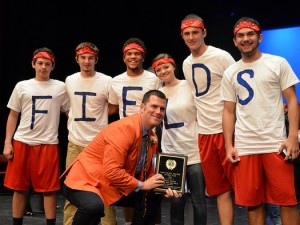
Students from Clay County (Fla.) Teacher of the year David Fields’ advanced placement U.S. History class show their support during a recent ceremony held at Orange Park High School.
Fields’ former social studies education professor, Elizabeth Washington, said she wasn’t surprised to learn of Fields’ selection as Teacher of the Year.
“Dave was very committed to making his lessons culturally relevant and engaging,” Washington said. “He was always
very passionate during classroom discussions — always willing to think through challenging issues and make thoughtful contributions.”
Fields, who also earned bachelor’s degrees in history and political science with a minor in secondary education at UF, will go on to compete to become Florida’s Teacher of the Year.
Clay Today, a weekly newspaper in Clay County, ran a recent article on his latest honor.
SPC honors EduGator alumna-donor Helen Gilbart
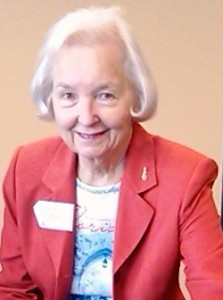 St. Petersburg College has honored UF College of Education alumna Helen Gilbart with its 2014 Outstanding Alumna Award.
St. Petersburg College has honored UF College of Education alumna Helen Gilbart with its 2014 Outstanding Alumna Award.
Gilbart graduated from St. Petersburg Junior College (renamed SPC in 2001 when it began offering baccalaureate degree programs) in 1964 with her associate in arts degree. After earning her bachelor’s and master’s in education from UF in 1965 and 1967 respectively, she returned to SPJC as a faculty member at its Clearwater campus where she later became the program director for humanities, fine arts and communications.
In receiving the SPC honor, Gilbart was described as “a true example of a life-long educator and advocate of student success.” She has published several student reading skills and test preparatory manuals and was one of the founding members of SPC’s Women on the Way resource and support center to help women succeed in college. With her late husband Donald Gilbart (BAE ’52, MEd ’63), she was one of the early members of the SPC Foundation’s Legacy Society.
The Gilbarts have provided endowments and scholarship support over the years for both SPC and UF’s College of Education. In 2008, the UF college formed the Gilbart-Olsen Education Technology Endowment with a joint $100,000 donation from the Gilbarts and alumna Norma Olsen (BAE ’76, MEd ’80). The COE last fall used endowment funds to purchase 20 iPads for pre-service teaching students to use in their technology integration courses, helping them develop the skills necessary to teach schoolchildren how to effectively use and learn from technology.
“I think back on my days in Norman Hall with so much pleasure,” Gilbart said. “I received my best direction and influence from professors who inspired me to want to help those children and college students who have no way to help themselves without a helping hand from people like me. I always hope that others will want to pay it forward, too, by donating to UF and (the College of Education).”
CONTACTS
SOURCE: Maria Gutierrez Martin, development and alumni affairs, UF College of Education, mmartin@coe.ufl.edu, 352-273-4140
WRITER: Larry Lansford, director, news and communications, UF College of Education
Young Alum honoree named to state education post
UF College of Education alumnus Brian Dassler (MEd ‘02, English Education) has been named the Florida Department of Education’s deputy chancellor of education quality for the Division of K 12 Public Schools.
Dassler received the college’s Young Alumni Award two years ago and also is pursuing an Ed.D. degree in educational leadership at UF He is considered by many to be an emerging thought leader in his field. He has co-authored several opinion columns on important education issues for the Tampa Tribune and St. Petersburg Times.
Dassler said he hopes his new position will enable him to make an impact on the quality of public education in Florida.
“Florida’s children deserve a skillful teacher in every subject, every year,” he said. “And we owe Florida teachers the preparation time and support necessary to deliver the quality of teaching that students deserve.”
He said his education at UF has helped him to prepare for his new challenge.
“I’m excited to advance an important agenda on behalf of students and educators,” Dassler said. “The ability to ask tough questions of myself and my colleagues — and to follow the answers wherever they may lead — is the critical thinking encouraged at UF.”
Linda Eldridge, Dassler’s doctoral faculty adviser who heads UF’s educational leadership program, said she isn’t surprised by his success.
“Brian has been a leader in every role he has undertaken,” Eldridge said. “He is one of the most outstanding doctoral students I’ve ever worked with in his field. His leadership ability will be an asset in his new role with (the Department of Education).
Dassler previously served as the chief academic officer at the New Orleans Center for Creative Arts, and as principal at KIPP Renaissance High School, also in New Orleans. He was named Broward County Teacher of the Year in 2007 while at Stranahan High School in South Florida, and was recognized as the 2001 Florida College Student of the Year by Florida Leader magazine.
Dassler also has demonstrated his dedication to public education by serving on the FLDOE’s FCAT bias review and writing and design committees. During his UF education master’s studies, he was recognized as the 2001 Florida College Student of the Year by Florida Leader magazine.
MEDIA CONTACT / WRITER: Larry Lansford, director, news and communications, UF College of Education; 352-273-4137 llansford@coe.ufl.edu
Alumna’s calendar photo inspires others with Parkinson’s disease
A floral photograph taken by COE ProTeach alumna Sandy Schilffarth Cohen (BAE ’95, MAE ‘96) has been selected to appear on the cover of the Parkinson’s Disease Foundation’s 2014 calendar.
Her photograph (above) depicts a fiery orange and yellow tulip — the official symbol of Parkinson’s disease. More than 1,500 voters helped to decide that her photograph would be the cover image of PDF’s annual print calendar, which is distributed to 20,000 people nationwide.
Cohen, 41, who taught special education in Alachua County for three years and now lives in Alexandria, Va., is one of 13 artists afflicted with Parkinson’s disease whose entries were voted by the public to be used in the Creativity and Parkinson’s Calendar. The annual print edition is distributed nationally to inspire others and create awareness of the progressive neurological disorder that affects nearly a million Americans.
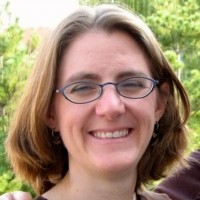 “I was really excited when I found out I was one of the five finalists for the cover photo,” the Gainesville native said. “But I was absolutely thrilled when they told me I won. It’s the first time I’ve ever had a photograph published.”
“I was really excited when I found out I was one of the five finalists for the cover photo,” the Gainesville native said. “But I was absolutely thrilled when they told me I won. It’s the first time I’ve ever had a photograph published.”
Cohen retired from her job as a special education teacher in the Fairfax County Public Schools in 2007 – four years after she was diagnosed with the debilitating disease at age 31. Only 4 percent of people living with Parkinson’s are diagnosed before the age of 50.
Though she has enjoyed creative pursuits such as drawing, music and taking photography lessons from her father since she was young, Cohen’s passion for the latter was reignited after her diagnosis.
“Photography gives me freedom from thinking about my symptoms and allows me to remember the ‘real’ me,” she said. “To have people from across the nation inspired by my photograph and sharing the experience of Parkinson’s together through art makes me so proud.”
Appearing on the calendar next to her photo is an equally inspiring quote by Cohen, a mother of two elementary school-age children: “I find an inner beauty in nature and each individual flower, which gives me the strength to enjoy each day knowing that my disease will not win the battle at this time in my life.”
Cohen is one of 350 artists living with Parkinson’s who have shared their artwork and experiences with PDF’s Creativity and Parkinson’s Project.
For more information or to order the free Creativity and Parkinson’s Calendar, go online to www.pdf.org/creativity.
Higher Ed alum heads elite university program for veterans
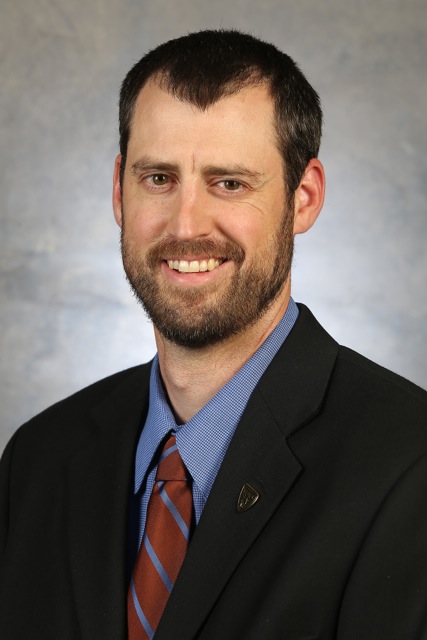 Under the leadership of UF higher education administration alumnus Phillip Morris, the University of Colorado-Colorado Springs was recently ranked among the best Western regional universities for veterans. Morris directs the university’s Office of Veteran and Military Student Affairs.
Under the leadership of UF higher education administration alumnus Phillip Morris, the University of Colorado-Colorado Springs was recently ranked among the best Western regional universities for veterans. Morris directs the university’s Office of Veteran and Military Student Affairs.
Morris received his Ph.D. in higher education from UF’a College of Education in 2011, and his master’s in geography from UF in 2007. While a doctoral student, he was an alumni research fellow, program coordinator, training coordinator and assistant lecturer. He earned his bachelor’s in political science from Concord University.
UCCS was ranked No. 13 out of the 40 best public and private universities for veterans. The university has 1,335 students enrolled who use education benefits associated with military service.
“We take pride supporting our veterans holistically to help them successfully transition into the workforce,” Morris said in a press release.
Morris’ passion for working with veterans is rooted in his own military experiences. He served as a paralegal specialist for the West Virginia Army National Guard for five years, one of which he spent in Iraq. He also completed three years of active duty in the U.S. Army, including one in Korea as an ammunition specialist and driver.
Read more about Morris by following this link: http://connections.cu.edu/news/five-questions-for-phillip-morris.
ESOL ed alumnus named ‘Top 40 Innovator’ in digital education
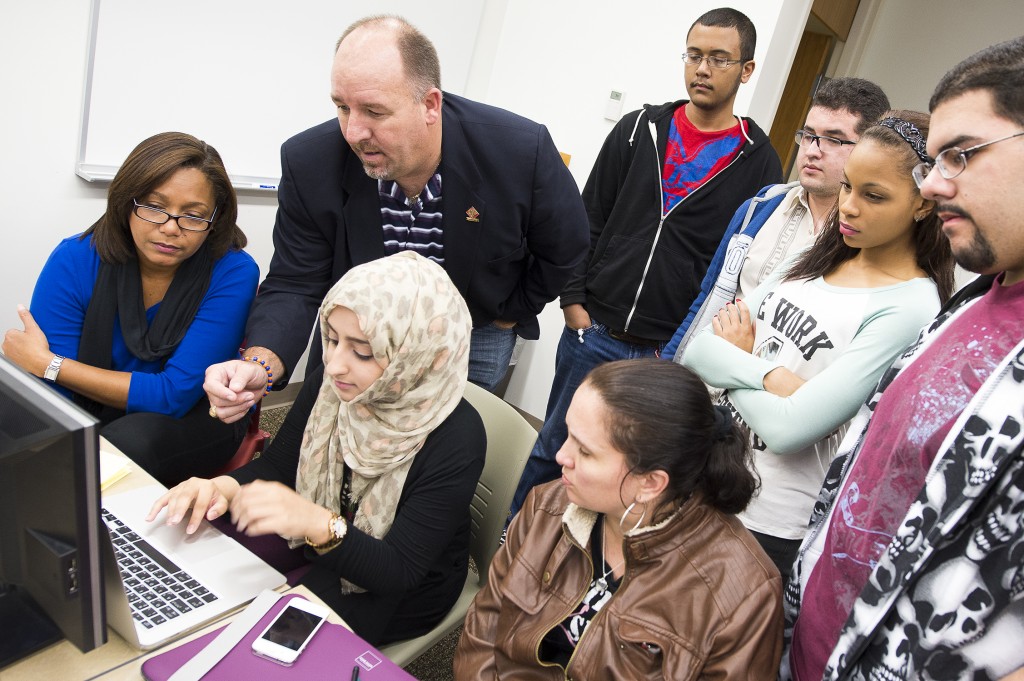
UF College of Education alumnus and professor James May, second from left, uses classroom technology to teach his ESOL students at Valencia College. (Photo by Don Burlinson, Valencia College)
James May, a “double EduGator” with two advanced degrees from UF’s College of Education, was named one of this year’s Top 40 Innovators in Education by the national Center for Digital Education.
The center is a national research and advisory institute specializing in K-12 and higher education technology trends, policy and funding.
May earned his bachelor’s degree in Spanish literature in 1993, his Master of Education in ESOL curriculum and instruction in 1999, and his doctorate in teaching and learning in 2007, all from the University of Florida.
He currently is a professor of English as a second language at Valencia College in Orlando, where he has pioneered the use of cell phones and computer-assisted learning in his classes. He is also the faculty fellow for innovation and technology at the college.
“We live in a world where just about everything that is known can be found by way of a quick Google or YouTube search,” May said. “Teachers who aren’t willing to embrace this digital reality are robbing future generations of what we could know tomorrow. Learning has become on-demand or just-in-time and our teaching methods should to adapt to this truth.”
For May, there is no one technology that serves as “the solution.” Instead, technologies like smart phones, Google Goggles, QR codes and Evernote (a note-taking and archiving app) provide him and his students with more efficient and engaging strategies that can be used to identify solutions to authentic problems.
“This technology allows me to model life-long learning strategies that students can use long after they have forgotten about me,” May said.
For example, May teaches his students how to use Google Chrome to perform voice, image and text searches and how Google Drive could be used for collaborating learning and writing.
“Professor May’s success stems from pushing boundaries and engaging both faculty and students through various technologies and innovative digital and communications strategies,” a Center for Digital Education spokesperson said.
To watch May in action, follow this link for a video by Valencia College.
May has been recognized in the past for his “eclectic” teaching strategies and use of technology in the classroom. In 2010, he was named the Association of Florida College’s Professor of the Year, and in 2011 he was selected as the CASE/Carnegie Foundation’s Florida Professor of the Year. In 2012, he won the Sloan Consortium Effective Practice Award for his presentation, “Cellphones in the Classroom: Collaborative or Calamitous?”
UF higher ed alum named to Florida university system post
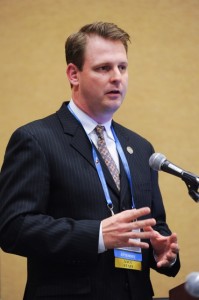 Chris Mullin (PhD ’08), a UF doctoral graduate in higher education administration, has been appointed assistant vice chancellor for policy and research by the State University System’s Board of Governors. The board oversees Florida’s public university system. Mullin previously served as program director for policy analysis at the American Association of Community Colleges in Washington, D.C.
Chris Mullin (PhD ’08), a UF doctoral graduate in higher education administration, has been appointed assistant vice chancellor for policy and research by the State University System’s Board of Governors. The board oversees Florida’s public university system. Mullin previously served as program director for policy analysis at the American Association of Community Colleges in Washington, D.C.
Mullin received a bachelor’s in art education from UF in 1999 and a doctorate in higher education administration in 2008. He also received an M.A.E. degree from Columbia University in 2005. In his UF doctoral studies, his research focused on funding issues affecting community colleges. He also helped launch and edit the Florida Journal of Educational Administration and Policy published by the higher education administration unit.
Education Leadership grad leaves UF campus a friendlier place for Asian Pacific Islanders
On a post-graduation trip to the Philippines in 2006, Leah Villanueva looked out across the South China Sea as the sun set and was struck by an overwhelming calling to be a teacher.
Villanueva, who identifies as “Filipina-Canadian-American,” had just graduated from the University of Florida’s College of Education with a bachelor’s degree in elementary education, but was heading to law school in the fall – or so she had planned.
Growing up in Florida, Villanueva was accustomed to seeing sunsets on the beach. But there was something about that particular Philippine sunset with its picturesque red-orange gradient that “spoke to me,” Villanueva said.
After that trip, Villanueva chose not to attend law school and instead began teaching kindergarten and reading in Kissimmee, Fla., where she stayed for three years.
“I was drawn to education because I really believe in the potential of people and helping people reach that potential,” Villanueva said. “I recognize how nurturing and guidance play a role in reaching that potential, and that’s what a teacher does.”
Villanueva, 28, has just finished her master’s degree in educational leadership at the College of Education. She also has served for the past year and half as the university’s first director of Asian Pacific Islander American Affairs (APIA).
This spring, she moved to the Philippines, becoming one of the first international fellows of the new Teach for the Philippines program, which is similar to the United States’ Teach for America program. Villanueva is one of 10 international fellows who are helping to build the new Teach for the Philippines program. In March, she began co-teaching at an elementary school in Manila, Philippines, as she simultaneously helps to shape the program’s policies.
“I love what I was doing at UF, but this opportunity in the Philippines is a perfect marriage of my passion for cultural identity and social justice and working with young kids,” Villanueva said. “Teach for the Philippines is an educational movement, but it’s also a reinstatement of pride for being Filipino.”
In Toronto, Canada, where she was born, Villanueva never felt like an outsider. But that changed when she moved to Florida during elementary school. There, a classmate slapped her because she was “different,” Villanueva said.
“If, throughout your education, your race or ethnic group is not even mentioned in the textbook or present in the teaching materials and you don’t see other students or teachers who can relate to you, it kind of erases your identity and minimizes your experience,” said Villanueva, who felt like she was “tokenized as the Asian kid” growing up.
Still, she also remembers the positive reaction she received after presenting a project about her Filipina heritage for class in the fourth grade.
“I remember being really scared I was going to be teased because I felt that being Filipina is really different,” Villanueva said. “But it was so affirming when my classmates were like, ‘This is so cool!’”
That feeling of acceptance and affirmation is what Villanueva promoted as UF’s APIA director since she arrived there in 2011.
Villanueva credits several College of Education courses for opening her eyes to diversity issues and how to create inclusive environments.
She may have the opportunity to train or mentor Teach for the Philippines participants while she is abroad. She said she intends to eventually become a teacher educator who “encourages her students to take a deep, introspective look at their own identities in order to understand the life experiences of their students and better serve them.”
“I love the classroom, I love the students and I think I’m a good teacher,” said Villanueva, who plans to pursue a Ph.D. “But for me to really chip away at the bigger problems I need to be able to influence and help guide those people who are going to be teaching.”
CONTACTS:
Writer: Alexa Lopez, news and communications, UF College of Education; aklopez@coe.ufl.edu; 352-273-4449
Media Relations: Larry Lansford, director, news and communications, UF College of Education; llansford@coe.ufl.edu; 352-273-4137
School counseling alumna studies human trafficking in Thailand, Cambodia
Alumna Catherine Tucker (EdS 2005, PhD 2007, school counseling and guidance) traveled to Thailand and Cambodia last month to learn about human trafficking as part of her clinical and research work on children who have experienced trauma.
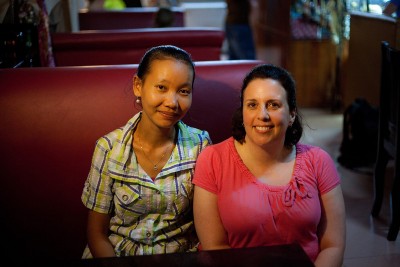
Catherine Tucker, right, poses with Davy Chun, a Destiny Rescue staff member in Kampong Cham, Cambodia. (Photo courtesy of Maria Grant)
Tucker graduated from the University of Florida’s College of Education in 2005 with a specialist in education degree and in 2007 with a Ph.D., both in school counseling and guidance. Now, she is an assistant professor and the coordinator of the clinical mental health counseling program at Indiana State University.
Tucker spent two weeks overseas with Destiny Rescue, an international nonprofit organization that helps children leave the sex trade by providing them with counseling, career training, housing and income.
She plans to return to Thailand and Cambodia in May with a group of students from Indiana State, who will also be researching and learning about human trafficking.
“If every person lived his or her life as if they could impact the evils and wrongs of the world instead of waiting for someone else to do it, imagine the impact that would have,” Tucker told Indiana State University. “Human trafficking is a global problem, but everyone can do something.”
Indiana State University’s Jennifer Sicking documented Tucker’s journey to Thailand and Cambodia in an online article.
UF-PKY alumna, 90, still has plenty to teach children—through poetry
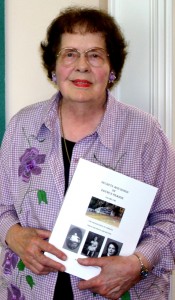
In her latest book, COE alumna Margaret Rosenberger, 90, writes poetry to sway elementary students away from criminal tendencies and toward a more positive future.
UF education alumna Margaret Rosenberger (BAE ’49, MEd ’52), a fifth-generation Florida native and a 1939 graduate of P.K. Yonge Developmental Research School, has been writing poetry since she was 10. Now, at 90, she is looking to publish her latest book of poetry, “A Guide: Ways to Succeed,” to sway troubled elementary students away criminal tendencies and toward a more positive future.
The idea for the book was born in 2005 at a meeting of the Alachua County Children’s Committee, which Rosenberger founded in the 1950s. The committee surveyed adults and students and found there were a startling number of elementary students involved in crimes. Rosenberger took concerns cited in the surveys and wrote poems about them.
“People tend to remember things better in poetry form,” said Rosenberger, a longtime Gainesville teacher and principal and a retired member of the School Board of Alachua County. She said the poems would be a good discussion starter for elementary classrooms.
She said once the collection is published, proceeds from book sales would go to a foundation with programs to keep youth from crime.
Rosenberger, who worked as a teacher and principal for more than 30 years in Gainesville and in over 20 countries during World War II, said the book is designed for teachers to read one poem each day and discuss different opinions with the students. Poetry topics range from character-building and handling temper tantrums to student health and hygiene.
She said her favorite poem is titled, “You’re not a brat.” It was inspired from her teaching experience at an Army base in Germany when students would introduce themselves as “Army brats.”
“I said, ‘I don’t like that word, ‘brat,’ and once we looked it up and read the definition, the kids decided they didn’t either,” Rosenberger said.
She recently has gained some public support from former J.J. Finley Elementary sixth-graders in the form of nominations to be the namesake of a new Alachua county elementary school being built at NW 39th Avenue and 112th Street in Gainesville. Her former Finley students have written multiple letters to the Gainesville Sun expressing their gratitude for Rosenberger’s guidance. A decision on the school name is expected soon.
Rosenberger has written 13 poetry books and continues to write in her free time along with directing the chorus at her retirement community, playing the piano and composing music. Rosenberger’s best-known composition is the “St. Augustine Song.” She’s been writing one book, about the history of the churches in Micanopy, for 60 years – and it’s still not finished. Her Sunday school teacher gave her the materials to pen the history of the churches in the area, and she said she keeps finding more and more information.
Some of Rosenberger’s older books are available for sale on Amazon.com, and those interested in buying a copy of her new book should contact her directly at 352-375-4816.
Here is one of Rosenberger’s poems from her latest collection . . .
THE ROAD TO SUCCESS
If we think of a mountain as the road to success,
We’ll keep trudging along up hill.
We’ll take time to sigh and a time to rest;
Find peace in our hearts and share goodwill.
We may twist and turn as we continue on.
Cares may press down a bit.
Things may go wrong sometimes,
But to succeed, we rest but never quit.
Success is leading and following.
Success is failure turned upside down.
Success is appreciating those who help.
Success is working with no thought of a crown.
Millions may stay at the base of the mountain.
Fear and doubt may make them stop.
But success comes to those who continue to climb,
And along the way, all who help reach the top.
© Margaret A. Rosenberger 2011
CONTACTS
MEDIA RELATIONS: Larry Lansford, director and editor, news & communications, UF College of Education, 352-273-4137; llansford@coe.ufl.edu
WRITER: Jessica Bradley, intern, news & communications, UF College of Education
Contact Us
College of Education
140 Norman Hall
PO Box 117040
Gainesville, FL 32611-7044
(352) 392-0726

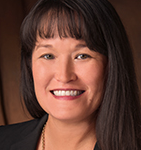
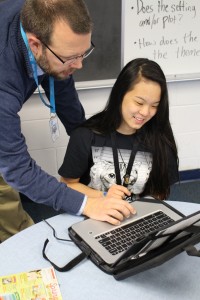
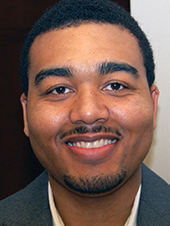
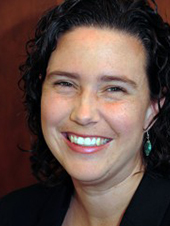
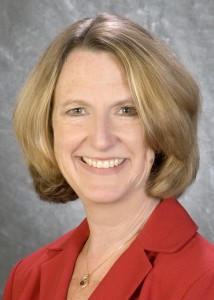
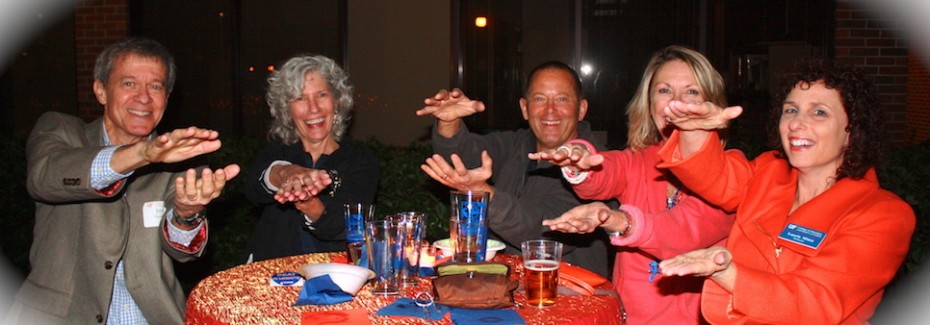

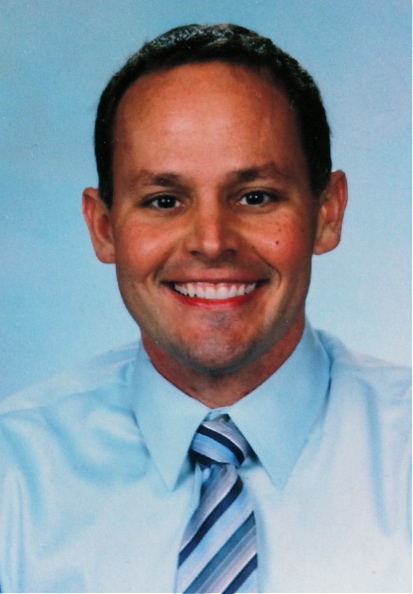
![Sandy Cohen-Tulip Flame of Hope_PDF Creativity Calendar 2014[4]](https://education.ufl.edu/news/files/2014/02/Sandy-Cohen-Tulip-Flame-of-Hope_PDF-Creativity-Calendar-20144.jpg)
